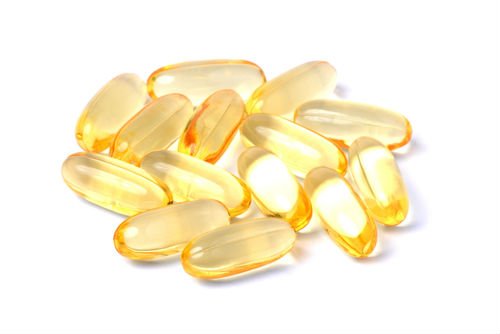Looking for fatigue solutions? Especially when you have thyroid issues?
I want to walk you through some amazing ways to regain your energy. If you have ever wanted to learn how to feel better with hypothyroidism, these tips are for you.




Looking for fatigue solutions? Especially when you have thyroid issues?
I want to walk you through some amazing ways to regain your energy. If you have ever wanted to learn how to feel better with hypothyroidism, these tips are for you.
Recommended Product: Adrenal Energy is a nutritional blend to safely improve fatigue symptoms in those with thyroid disease. Fatigue is one of the top complaints of people with thyroid disease. It can manifest as low energy, poor mental function, and a lack of exercise tolerance. Click Here
How Thyroid Disease Affects Your Energy
Solution #1: Weight Loss
Solution #2: Iron
Solution #3: Lowering Antibodies
Solution #4: Less Medications
Solution #5: Different Medication
Solution #6: Regulating Iodine
Solution #7: Adrenal Dysfunction
Solution #8: Exercise
Solution #9: Meal Timing
Solution #10: Wake Timing
Regain Your Energy Today
Over all my years of helping people struggling with thyroid disease, this has to be one of the biggest themes: energy. It’s no surprise, though, because energy levels have such a huge influence on a whole host of other health factors.
That includes both physical energy, like movement and your ability to perform certain tasks, as well as your mental energy, like your ability to recall words or memories. It also has an effect on emotional energy and how we generally feel about ourselves.
When we are not generating energy properly, we also store too much of it. This can lead to issues with body weight, too. There are just so many ways that our energy levels influence and dictate our overall health outcomes.
Commonly, when struggling with thyroid disease, people are told that “this is as good as it gets.” Your levels are normal, you’re on medication, and you are kind of sent on your way. Or, you might simply be handed a whole lot of pills to take to simply feel normal.
So, if you are not feeling at your best, I wrote this article for you. I want to give you some helpful, actionable ways to regain your energy when you are struggling with thyroid disease. I really hope they help and can help you get your energy back where it needs to be.
I mentioned it briefly above, but the relationship between body weight and energy cannot be discounted. Simply put, extra weight can cause fatigue.
When I say “extra weight,” though, that doesn’t mean you have to lose massive amounts of weight or that you are carrying massive amounts of weight in the first place.
Instead, what I am talking about is a little bit of weight in the wrong places. There is this thing called “organ fat,” which deals with fat more specifically in your liver and your pancreas.
The astounding thing is that the difference between bad and good could come down to a gram (or the weight of a paperclip). This is just how pivotal organ fat can be.
This kind of inflammation that occurs, based on organ fat, can be a massive driver of fatigue throughout the body and mind. When the body is inflamed, it intentionally puts more energy into storage and rest and less on burning and activity.
That can also be a solution. But, I don’t mean getting out there and losing 50 pounds, instead focusing on losing 3% of overall body weight. For most adults, that is going to translate into somewhere around 5-10 pounds.
Key Insight: This is a massive reason behind why I created the Metabolism Reset Diet. I wanted to create a pathway to lose the right kind of weight, in the right amounts, for the right places in the body. You can give it a first look by clicking here right now.
The truth is that most of those who are prone to thyroid disease are adult women, who are part of the same demographic known for having chronic iron deficiency.
And, they are low in iron for a very simple reason: menstruation. One cycle can result in a loss of around 60 milligrams of iron. And, the body can only absorb around a tenth of a milligram per day. A heavy flow can result in falling behind far more than you can catch up. Ever.
If you have perfect thyroid function, you will likely have a lot of leeway when it comes to iron. But, if your thyroid is at all marginal, your thyroid becomes almost instantly more sensitive to being even the slightest bit below optimal on iron.
The other relationship is that those with thyroid issues are also likely to have other autoimmune conditions that makes it far more difficult to absorb iron in the first place. We call this atrophic gastritis, or thyrogastric syndrome.
Key Insight: These factors make it so difficult to get the right amounts of iron. That is why I am so jazzed about something else I created, Easy Iron, which can help you better absorb and tolerate iron – without tearing your stomach apart. One capsule a day can help.
Thyroid autoimmunity is something that causes thyroid disease, and causes there to be too little thyroid hormone released into the body. For many people, that means two things happening at once:
For so long, doctors assumed that the underperforming thyroid was the cause of a lot of symptoms. Now, what we are learning is that the changes in the immune system may be a bigger driver of symptoms for most people over the thyroid not working.
We know this is happening when thyroid antibodies are high. For some people, this happens even when the antibodies are not elevated.
If your thyroid function has been abnormal, and you are lacking an obvious reason why, consider an ultrasound. Sometimes the autoimmunity shows up when it is looked at via imagine, even if the antibodies are negative.
So, what do you do if your antibodies are up? Thankfully, the iodine-regulating program that I helped create as part of the Thyroid Reset Diet can be a massive help. It can help bring down antithyroid peroxidase and antithyroglobulin levels.
Key Insight: The other easy trick is my new blend called Antibody Support. This is a blend of three clinically-proven nutriceuticals that can help bring down your antibody levels.
There are two key things to know about thyroid medications and your energy levels. The first is that you are overdosed, it can simply make you feel tired. But, how would you know if you are taking too much?
The later stages of an overdose involve high levels of T4 and T3, but the earlier stages involve the TSH dipping below range. That is the only thing that changes during these earlier stages, and where you should really focus your attention.
Too much medication can feel just as draining as not having enough at all. It can make your body fight thyroid hormone and can make you feel tired.
Even if you are not taking too much, the more your body can make thyroid hormone on its own, the better. For most people, they can take less or no medication and feel just as well – or feel better and have more energy!
This blends well with my previous point, so we have a bit of a two-parter when it comes to medication! The second thing to consider as part of this is not simply considering taking less medicine, but taking different medicine altogether.
While I would start with getting on the optimal amounts for you, while allowing your body to produce thyroid hormone on its own. Past that point, it may be worth considering different categories of medications for your health and energy levels.
The two main categories I find most appropriate are:
Whether on their own or taken together, I have often found that these are the best two paths to take. Which one is best for you? It’s tough to say and it’s more a matter of trial and error. If you are currently on medication, I would focus more on dialing in your levels.
Key Insight: If you have already done that, and you’re still not feeling your best, you may want to consider changing categories for a more wholesale change.

This matters even if you do not have a thyroid. What happens is that too much iodine works in several ways, some applying to the thyroid and others applying to the entire body.
Within the thyroid, too much iodine can be a factor in slowing it down while also driving the immune system into a chaotic state. It can cause it to attack the thyroid.
Outside the thyroid, too much iodine can make your body not respond well to thyroid hormone. Even if you are taking them from a pill, too much iodine will harm their efficacy.
Key Insight: The extra iodine slows your body’s rate of activating the hormone and makes it harder for it to get assimilated in the cells.
When we talk about iodine, and getting too much, I am not talking about taking dangerously high amounts. There are those who struggle with iodine intolerance, where even a little bit more iodine can feel like a lot (even when it isn’t truly a lot).
For those prone to thyroid disease, iodine levels that would be completely normal for regular people are not normal for them. In fact, it can cause a lot of issues!
Consider dialing in your iodine by taking a look through the Thyroid Reset Diet. More specifically, the “Green Light Guidelines.”
Adrenal stress, adrenal fatigue, adrenal dysfunction. No matter how we refer to it, it essentially relates to the body’s stress response and how we manage it. What happens is that our lifelong burden of stressors makes us less able to repair ourselves.
Your body needs time to rest, repair, and recover. If you are stuck in a mode of stress, you do not get enough of that. And, it leads to your body not being able to generate the proper amounts of energy that you need to take on the day.
This is all tied into what we call adrenal function. We know this is a problem when someone has recurrent symptoms during certain times of day. That is because the adrenal glands control the daily rhythm.
If there are certain times of day where you perk up and feel really good, and others where you don’t, this could be an issue with your adrenals. The pattern tells us so much.
Key Insight: An easy action step is to take the Adrenal Quiz. This can give you a great sense of where your adrenals stand and some next-step actions you can take immediately.
Exercise is so important for energy. Even if you are already doing some physical activity, think about ways that you could progress it forward. As a general rule, most of us could truly benefit from more exercise than we currently get. It’s a great opportunity.
Key Insight: Somewhere around an hour per day is a great standard to set. The further you get beyond an hour a day, the less clear the benefits become. Aerobic training is likely the best place to start, starting with walking and building up from there.
I am not saying it is dangerous to do more than an hour of exercise per day, but that if you are looking to boost your energy alone then it is a strong standard. For the purposes of energy alone, you will do your best at the hour mark of exercise.
On the flipside, if you are doing an hour of exercise a day and feeling incredibly drained, you may have rushed into it a bit too quickly. Exercise is a stressor on your body, so you need to make sure you’re doing it sustainably so you feel better and not wiped out.
Exercise is super powerful, but it is very precise. You should see how much you are doing now, and build up to it. Don’t rush in, feel free to take steps back, and really focus on how you feel to get the best out of physical activity.
When you have your meals is so important. While we think more about what we have in our meals and how much we have, timing matters too.
As far as body weight goes, the frequency of your meals does not make a real difference past your personal preferences. You don’t “rev up your metabolism” by eating more or less often, the total amount of food is what affects that.
When it comes to energy, though, it can be different. There are a lot of people who have a difficult time keeping their blood sugar within an ideal range. The more you make it easier on your body, the more that plays out.
That starts by not consuming things that make your blood sugar go crazy high or crazy low. Caffeine is a bit stimulant in this regard, because caffeine works the same way as sugar. The same applies for things like processed sugars.
A good diet for energy is going to look like a combination of:
Key Insight: Play around with meal timing. Make sure that when your meals occur, they are happening around the same time each day. It helps your body know what to expect!
Finally, the more you work in resistant starch into your diet, the more likely it is that your blood sugar levels will remain more consistent for longer.
There are a million different ways to talk about sleep hygiene and getting better sleep. But, the number one thing is waking up at the same time each day.
Ideally, you would go to sleep at the same time, as well. But, what really matters is waking up at the same time in the morning. This is the real priority for energy levels.
What happens is that the time you wake up is the time your body expects to wake up. If you wake up at different times throughout the week, it puts your body in a state of confusion.
This is most felt on the weekends. Sleeping in might feel good for our energy levels, but it has the opposite effect and sets us back almost on a weekly basis. It has the opposite effect!
Key Insight: Even if it means adjusting your night schedule, you need to wake up at the same time each day. Your body will thank you.
I hope these ten tips were helpful in how you think about your energy levels, and how you can go about restoring your energy levels to a great place for you.
The great thing is that gaining more energy isn’t about adding in more and more things. Instead of focusing on doing more, focus on doing the right things for your body.
As I mentioned during the article, I hope you will consider taking the Adrenal Quiz. This could be a big thing holding back your energy, and taking the quiz can help add clarity into the mix.

P.S. Whenever you are ready, here is how I can help you now:
Dr. Alan Glen Christianson (Dr. C) is a Naturopathic Endocrinologist and the author of The NY Times bestselling Hormone Healing Cookbook, The Metabolism Reset Diet, and The Thyroid Reset Diet.
Dr. C’s gift for figuring out what works has helped hundreds of thousands reverse thyroid disease, heal their adrenals, and lose weight naturally. Learn more about the surprising story that started his quest.